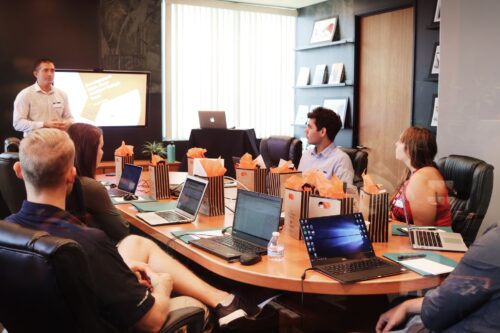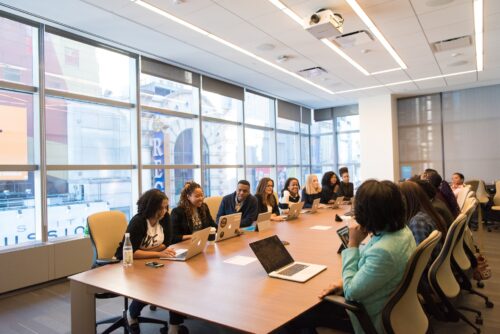The act of sexual harassment should never be accepted and tolerated in the workplace. Any unwelcome sexual conduct shouldn’t be tolerated in the workplace. As an employer, you have a duty to make sure your employees are kept safe on the job, which includes providing an environment where sexual harassment is not tolerated within the workplace. When it comes to sexual harassment prevention at work, it is common for people to feel unsure of how to speak up about it or when to do so, but if you are looking for help and support there are many to choose from. The goal of this blog is to discuss the help that is available to victims and witnesses in Queensland, importance of harrassment prevention training.
How does sexual harassment differ from other forms of harassment?
Harassment of a sexual nature is whenever you do something unwelcome that offends, humiliates, or intimidates someone, or where it’s reasonable to expect the person would feel that way. This includes uninvited physical intimacy, such as uninvited sexual proposals or comments with sexual connotations.
It is possible for co-workers, supervisors, managers, customers, clients, patients, visitors, or others who interact with a worker or group of workers to engage in harassment and sexual harassment. Typical examples include employees of other businesses sharing the same workplace, such as subcontractors on a jobsite or delivery persons.
It is also important to keep in mind that sexual harassment can encompass behaviour that, while not directed at a particular individual, may affect someone who witnesses or is exposed to it. One example would be hearing sexual comments or seeing posters in the workplace that are sexually explicit.
In some cases, sexual harassment may be unnoticeable, repeated, or continuous, but it may also be a one-time occurrence.
Are there any situations in which sexual harassment is lawful?
When it occurs at work, in a store or restaurant, in school or college, while searching for accommodation, or when dealing with tradespeople, businesses or State or local government officials, sexual harassment is unlawful. The Queensland law prohibits sexual harassment regardless of where it occurs, unlike discrimination, which is illegal only when it occurs within a specified area of activity.
The employer may be liable for sexual harassment in the workplace if reasonable steps are not taken to prevent it from happening, provided that the employer takes reasonable steps to prevent the occurrence of sexual harassment.
It is the responsibility of employers to take reasonable steps in order to ensure that their employees are protected from sexual harassment and other forms of discrimination and vilification, and to ensure that their workplaces are free from such behaviours.
As part of this process, it may be necessary to develop a policy regarding sexual harassment and ensure that all employees, particularly managers and supervisors, are trained in how to reduce or prevent incidents from occurring in the future. As well as providing an effective process for handling complaints, employers should also implement a complaint management system.
An employer or an organization cannot escape their legal responsibility by claiming that they were unaware of sexual harassment in their workplace.
Therefore, both the employer and the individual in Queensland who engaged in sexual harassment can be liable to pay compensation for loss or damage suffered by the victim.
Facts
Safe Work Australia report outlined that an estimated one in three workers (33%) were victimized by sexual harassment at work in the past five years, according to the survey. More than three quarters of harassers were men (77%), and women (41%) were far more likely than men to be harassed at work. Additionally, only 18% of employees reported workplace sexual harassment, a worryingly low level.
According to new statistics, one out of three people have experienced sexual harassment at work over the past five years. In more than half of the cases where repeat harassment has occurred (56%) the harassment has been ongoing for more than six months.
Workplace sexual harassment statistics, a new infographic from Safe Work Australia, highlights the industries with higher rates of sexual harassment than the national average of 33%. A few of these industries include:
- 81% of respondents work in information, media, and telecommunications
- The arts and recreation sector accounted for 49% of the total
- Services related to electricity, gas, water, and waste management 47%
- 42% of the total is in retail
- 40% of it is mining.
Help that is available to victims and witnesses in Queensland
In a workplace. Depending on how comfortable and safe you feel, you can ask the person to stop. Your supervisor may be able to provide you with suggestions for addressing the behaviour. Report the incident to your employer in a formal manner. Make sure you are aware of your employer’s policy regarding how to report sexual harassment and how complaints will be handled.
Outside of the workplace, help is available. There may be organisations outside of your workplace that can help you.
It is the Australian Human Rights Commission. It accepts written complaints regarding sexual harassment. An investigation may be conducted and conciliation may be used to resolve the allegations. The objective of this process is to resolve the issues through informal discussions.
The Queensland Anti-Discrimination Commission is in charge of ensuring equal opportunity. Complaints must be submitted in writing. Their objective is to obtain information about what transpired, contact the respondent, and attempt to reach a conciliation agreement. This may not be successful, in which case they may refer you to the appropriate tribunal within the state or territory.
Queensland’s Work Health and Safety Authority (WHSQ) investigates whether your employer adheres to workplace health and safety laws and reviews how it prevents sexual harassment. When a person conducting the business or undertaking (PCBU) does not comply with their WHS responsibilities, penalties may be imposed.
The 1800Respect. If you need assistance, you may wish to contact 1800Respect, or you may wish to consult your union or legal aid service.
The Fair Work Commission. Online applications are accepted by the commission. In the event that you are still employed at the workplace, it may be able to assist you by issuing a stop sexual harassment order. Furthermore, it is able to examine unfair dismissals or violations of employment rights. An order for reinstatement or compensation may be issued by the Commission if this is proven.
The police. The Queensland police department may be able to assist you. In the case of sexual harassment, they may be able to investigate whether a criminal offense has been committed.
Workers’ compensation. Workers’ compensation may be available in some instances if you have an injury or illness as a result of workplace sexual harassment.
Legal advice. You may wish to seek independent legal advice about the options available to you.
The goal of a Sexual Harassment Prevention Training is to facilitate a dialogue between a PCBU and its employees about psychosocial hazards. Workplace sexual harassment prevention policies, procedures, and processes should be understood by all employees. The most valuable asset of any company is its employees. As a result of minimising safety incidents, they’re helping minimise the cost of disruptions and the impact on the business.
We at WHS and Training Compliance Solutions are passionate about sharing our many years of knowledge and experience in the area of workplace safety with employers and employees. Participants attending our Workplace Sexual Harassment Prevention Training training will gain a deeper understanding of their roles and be able to incorporate positive change for a more positive working environment through our Workplace Sexual Harassment Prevention Training training. We are also offering harassment prevention training for our clients in Queensland as elearning.
Access Psychosocial Hazards Books from Amazon: Psychosocial Hazards












